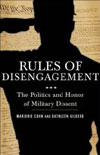Churches Are Anti-War at the Top, “Something Else on the Ground”,
Says Theologian Gary Dorrien
Church Visit #9
With commentary by Gayle Dunkelberger
Leaders of a number of U.S. churches have made strong statements for ending the Iraq War, said the Rev. Dr. Gary Dorrien, Reinhold Niebuhr Professor of Social Ethics at Union Theological Seminary and professor of religion at Columbia University, but when it comes to presenting these messages in local churches, “it is something else on the ground.”
Reverend Dorrien, speaking at St. Bartholomew’s Episcopal Church in White Plains, N.Y., on Sunday, January 13, said that he has worked tirelessly to speak for peace in the U.S. conflict with Iraq, since before the 2003 invasion, and he has found reluctance among pastors at the grassroots level to have this message presented to their congregations. He says this reluctance is diminishing somewhat, but it is still there.
Asked why the pastors are reluctant, he owed it to fear that they will lose parishioners.
He said he believes that it is very appropriate for an anti-war message to be presented from the pulpit, that “it’s constitutive in the Gospel” and is a matter of “putting the Gospel ethic on the table.” He said this can be done in a non-partisan way, but he has found that pastors would generally prefer him to speak to a gathering after services. He said he has also experienced being permitted to speak only if someone presenting an opposing view also speaks.
His remarks suggest that things may have not changed dramatically in U.S. churches in the nearly five years since the invasion of Iraq, given what he said on April 9, 2003 in a talk entitled “Imperial Designs: Resisting the Permanent War”:
“In the interest of inclusivity I have kept my religious feelings out of this talk, but I must at least acknowledge that my own motivation as a participant in the peace movement is primarily religious. From a Christian standpoint it is supposed to be nearly impossible to morally justify the murderous violence of war. The world worships power, but Jesus lived and taught the way of agape - the power of self-sacrificial divine love. To the early church the cross symbolized the fellow-suffering way of Christ, which contradicted the way of violence and domination.
“It is painfully true that the Christian Church did not sustain this meaning of the cross after the fourth century. To many people, the cross became a symbol of domination and persecution. Nonviolence is supposed to be constitutive in Christianity, yet in recent months I have been repeatedly asked to explain why so many church leaders, including the Pope, have opposed the war. It isn’t what people expect. How very sad.”
In his talk at St. Bartholomew’s he said that religion in the United States has been woven into the culture in such as way as to give Americans a sense of the United States as an extraordinary country – “God’s New Israel” or the “Redeemer Nation” – superior to other nations. The advocates for the Iraq occupation trade “on historic American myths of exceptionalism and Manifest Destiny”.
The majority of his one-hour presentation was a detailed examination of the current situation in Iraq, which he views as highly unstable and dangerous inspite of the reported reduction in deaths. He believes the U.S. presence is contributing to the tragedy and that: “We need to get out of Iraq”.
Reverend Dorrien was invited to St. Bartholomew’s by the church’s pastor, the Rev. Gawain de Leeuw. Martha Conte, Margaret Eberle, Gayle Dunkelberger and I were invited by Reverend de Leeuw to attend the talk, and the service preceding it, because he is aware that we have been visiting religious services in Westchester County over the last few months in a bannering campaign intended to prompt local clergy to speak out publically against the occupation of Iraq.
St. Bartholomew’s is a large stone church, with elaborate, antique stain glass windows, built in 1928 in residential highlands of White Plains. (From the windows of the parish hall where the talk was held one can see down to the downtown and the new Trump “skyscrapers.”)
Entering the church there is a sense of a huge amount of space, with the high-vaulted ceilings, painted green with painted patterns on the roof beams. The church would appear to hold about 300 people if filled to capacity, but on our visit there were only about 50 people total in the congregation and choir, about five of them African-American. A woman who appeared to be in her 60’s told me that the parish is rebuilding; she is very proud of the choir.
The service marked the first Sunday after Epiphany and the baptism of Jesus. The first lesson of the day was from the Book of Job, which would also be the theme of the sermon delivered by Reverend Dorrien.
The sermon focused on the Biblical contradiction of great suffering that is heaped onto a just person, Job, and his rejection of justifications for his suffering offered by his associates. Martin Luther King Jr. “got it right”, said Reverend Dorrien, in understanding that through suffering can come enlightenment and that suffering can lead to redemption when people struggle against it.
Reverend Dorrien said, in concluding his sermon, that his wife, who was also a clergyperson, had died of cancer and in this experience he had seen that the “power of love divine” can ease our burdens.
After the service, about 20 people adjourned to the parish hall and a buffet breakfast, then the talk on Iraq by Reverend Dorrien.
 |
| L-R: Martha Conte, Gayle Dunkelberger, the Rev. Dr. Gary Dorrien; the Rev. Gawain de Leeuw, Nick Mottern |
Every church needs a Rev. Dr. Gary Dorrien in the pulpit. Unfortunately, having true agape concentrated mainly within the highest levels of church hierarchy or in the hallowed halls of academia must be frustrating for those in these realms. As well as for us. It’s like having a grocery store locked up with starving people outside. There are some churches that are much closer to those of early Christians, but as Rev. Dorrien said, not nearly enough.
Our general observations and experiences in the last few months have taught us that it is especially sad when our local church leaders seem to believe in Manifest Destiny of the United States and/or subjugate themselves to congregants who think this way. And we have found that often pastors are making mistaken assumptions about their congregants’ thinking.
Rev. de Leeuw and the parishioners at St. Bartholomew’s provided a lovely and lavish breakfast buffet of lox, assorted bagels, pastries, fruit platters, trays of really fancy cheeses, Mimosas, champagne, juice, coffee and tea…white tableclothes. Rev. de Leeuw joked that some of the menu was a tenet of the Episcopal Church. All that and a impeccable speaker. All to which the general public was invited. I so wished that more had been able to attend. (Contributions of $10 were requested for the breakfast but no required.)
I describe all this in mouth-watering detail experessly to convey an image that shows a real depth of caring. Thanks to all those at St. Bartholomew’s who share in the struggle.





